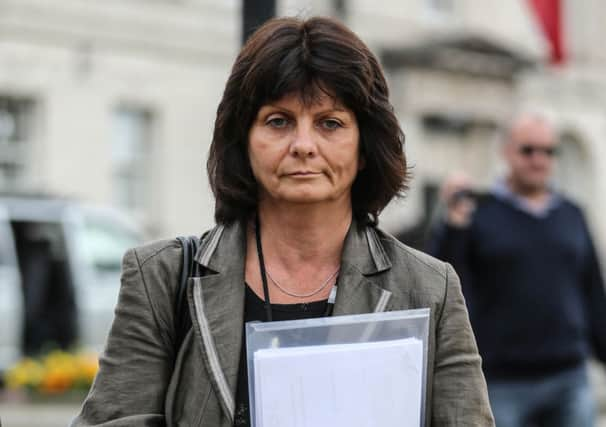Nearly 50 abuse cases still open in Rotherham


The update from Joyce Thacker to the council’s cabinet said 47 open cases are being dealt with by the town’s social care child sexual exploitation team.
The majority of the children involved are girls, with five boys among the 47.
Advertisement
Hide AdAdvertisement
Hide AdMs Thacker, who quit her £130,000-a-year post last Friday by mutual agreement in the wake of the Jay report, had been due to present the report to borough councillors.
The number of open cases has fallen from 69 in March 2013 to 51 this March and 47 by the end of June.
The Jay report, which estimated at least 1,400 children had been victims of sexual exploitation between 1997 and 2013, said there had been many improvements in how the issue was being dealt with by the council and police, despite blatant failings between 1997 and 2009.
But it warned that problems had not been solved. “The abuse is not confined to the past but continues to this day,” it said.
Advertisement
Hide AdAdvertisement
Hide AdMs Thacker’s report, which looks at the council’s efforts to tackle exploitation in the first three months of the financial year, said the Jay report had attracted “national and international interest”.
It said: “Child sexual exploitation has had extensive national media attention. Rotherham has featured in this.”
Her report said one of the key strategies for tackling the town’s child sexual exploitation problem was bringing together organisations such as its child sex exploitation team, community service, and youth and health workers to work with each other at the council’s headquarters, Riverside House.
It added: “This will allow improved joint working not only for child sexual exploitation but also for domestic abuse, anti-social behaviour and the wider safeguarding children agenda.”
Advertisement
Hide AdAdvertisement
Hide AdRotherham Council has refused to comment on whether Ms Thacker received a pay-off from the authority.
The news comes as local authorities warned that plans to relax taxi laws could put children at greater risk of sexual exploitation.
At present those driving minicabs will have been through a rigorous council vetting process, including criminal records and medical history checks.
But the Local Government Association (LGA) says new Government proposals within the Deregulation Bill, set to return to the House of Lords next month, will mean minicab licence holders will be able to allow other people to drive their vehicle when they are off duty without any of those checks being carried out.
Advertisement
Hide AdAdvertisement
Hide AdThe LGA, which represents more than 370 councils in England and Wales, is warning that this will make it easier for criminal gangs to exploit the system and use licensed vehicles to groom, rape and traffic children.
Independent reports into child sexual exploitation in both Rotherham and Rochdale found abusers used their minicabs to target vulnerable children, highlighting the need to ensure controls in this area remain as tight as possible.
The scandal has also led to calls that lessons on sex and relationships should be made compulsory in primary and secondary schools.
The End Violence Against Women Coalition (EVAW) and the Everyday Sexism Project are launching a petition today calling on the leaders of the main political parties to make sex and relationship education (SRE) a general election pledge.
Advertisement
Hide AdAdvertisement
Hide AdThe campaigners, who also have the backing of Mumsnet, said youngsters were “bombarded” with negative messages about relationships and sex, stemming from an increased exposure to online pornography and “sexualised” elements of popular culture.